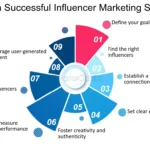If you’re considering in vitro fertilization (IVF) as a path to parenthood, one of your first questions is likely, “What are the chances this will work the first time?” IVF is a significant commitment—emotionally, physically, and financially—so it’s natural to want clear answers. While success rates vary widely, understanding the factors influencing them can help you set realistic expectations and prepare for your journey.
What is IVF and How Does It Work?
IVF is a fertility treatment that involves combining eggs and sperm in a laboratory to create embryos, which are then transferred to the uterus. The goal is to achieve a successful pregnancy.
This process is typically used when natural conception is difficult due to factors like blocked fallopian tubes, low sperm count, or unexplained infertility. While IVF is a complex procedure, advances in medical technology have made it a widely accessible and effective option for many people.
What Determines IVF Success Rates?
Several factors play a role in determining how successful IVF Turkey will be, particularly on the first try. Age is one of the most significant factors, with younger women generally experiencing higher success rates.
The quality of the eggs, sperm, and resulting embryos also greatly influences the outcome. Additionally, lifestyle choices like maintaining a healthy diet, avoiding smoking, and managing stress can positively impact your chances. Pre-existing health conditions, such as polycystic ovary syndrome (PCOS) or endometriosis, may also affect the likelihood of success.
IVF Success Rates for First Attempts
On average, the success rate for IVF on the first try is around 30-50%, but this varies depending on individual circumstances and clinic-specific factors. Clinics with state-of-the-art technology and highly experienced specialists may achieve higher rates. It’s important to note that advanced techniques, such as improved embryo freezing methods and genetic testing, continuously enhance outcomes for first-time patients.
Age and Its Impact on First-Time IVF Success
Age is one of the most critical factors affecting IVF success. Women under 35 typically have a success rate of around 40-50% on the first attempt. For women between 35 and 40, this rate drops to approximately 30-40%, and for those over 40, it may be as low as 10-20%. This decline is largely due to the natural decrease in egg quality and quantity as women age. Understanding these statistics can help you make informed decisions about the timing of your treatment.
The Role of Egg and Sperm Quality in IVF Success
The quality of the eggs and sperm used in IVF directly affects the viability of the embryos. Healthy and mature eggs are more likely to fertilize successfully, while high-quality sperm increases the likelihood of creating robust embryos.
For those facing issues with egg or sperm quality, using donor eggs or sperm may significantly boost success rates. Consulting with your fertility specialist can help determine the best approach based on your situation.
The Importance of Embryo Quality
Embryo quality is a key predictor of IVF success. Embryos are graded based on their development and appearance, with higher-quality embryos more likely to implant successfully. The choice between fresh and frozen embryo transfers can also impact success rates. Recent research suggests that when properly preserved, frozen embryos can lead to outcomes comparable to or even better than fresh transfers. Genetic testing of embryos can further increase the likelihood of success by identifying the healthiest options for transfer.
Clinic and Specialist Experience
The expertise of your clinic and specialist plays a vital role in your IVF journey. Clinics with high success rates often have advanced technology and skilled staff who can tailor treatments to your needs. When selecting a clinic, asking about their success rates for first-time IVF cycles and their experience with similar cases is important. A knowledgeable and supportive team can make all the difference.
Emotional and Physical Preparation for the First IVF Attempt
Preparing for your first IVF attempt involves more than just medical treatments. Emotional readiness is equally important, as the process can be stressful and emotionally draining. Managing your expectations and maintaining a positive outlook can help.
Physical preparation, such as following a balanced diet, exercising moderately, and taking recommended supplements, can also improve your chances of success. Discussing your readiness with your doctor can help ensure you’re in the best possible position to begin.
What Happens if IVF Doesn’t Work the First Time?
It’s natural to feel disappointed if your first IVF cycle doesn’t result in a pregnancy, but it’s important to remember that this is not uncommon. There are many reasons why a cycle might fail, such as issues with embryo implantation or uterine receptivity.
After a failed attempt, your fertility specialist will analyze the cycle to identify any adjustments that could improve your chances in subsequent tries. Many people find success on their second or third attempt, so persistence often pays off.
Finding the Right Support for Your IVF Journey
IVF can be a challenging journey, but having a strong support system can make it easier. Family and friends can provide emotional backing, while professional counselors or support groups can offer additional guidance. Online communities for IVF patients are another excellent resource for sharing experiences and advice. Surrounding yourself with understanding and supportive people can help you stay resilient.
The success rate for IVF on the first try depends on various factors, including age, egg and sperm quality, and the expertise of your clinic. Your chances may vary, while the average success rate is around 30-50%.
Remember, IVF is a journey that often takes multiple attempts to achieve the desired outcome. You can approach this process with confidence and hope by staying informed, seeking support, and working closely with your fertility specialist.
Ready to take the next step in your IVF journey? Visit Flymedi to explore, compare, and find the best fertility clinics tailored to your needs. Your path to parenthood starts with the right choice—start browsing today.


